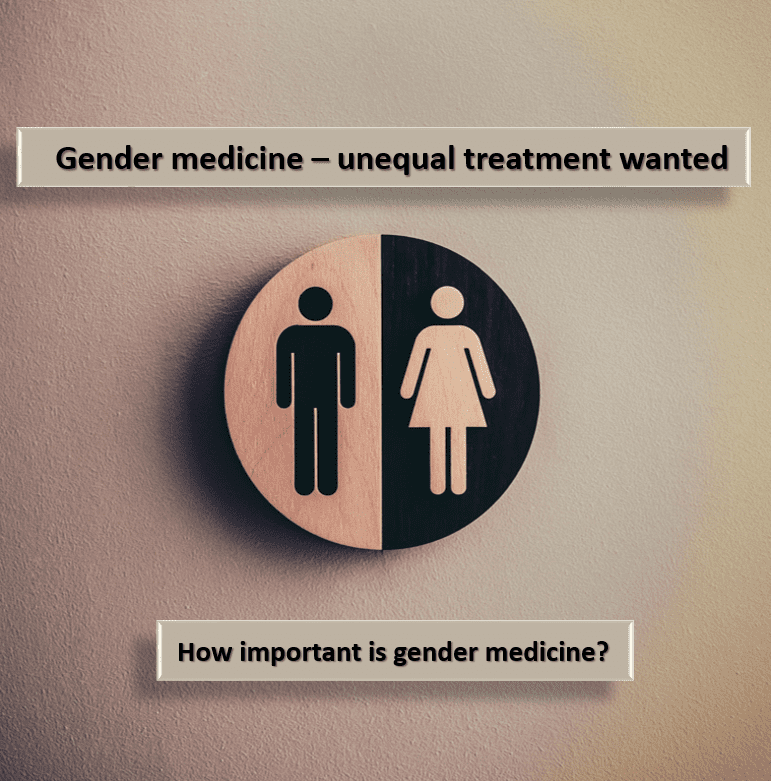
How important is gender medicine?
For the trade journal Pharma Relations 07/22 we were allowed to contribute some statements on the topic of gender medicine. Our managing director Marco Dröge answered the following exciting questions.
How do you assess the importance of this topic for your customers in the pharmaceutical industry?
From our point of view, the topic of gender medicine is becoming increasingly relevant. After all, a person’s gender plays an important role in all areas surrounding health. The clinical data base for gender differences in drug therapy is also becoming broader and broader. Gender differences influence how diseases develop, how they are diagnosed, how they progress, and how they are treated. Each of us, and I don’t just mean the pharmaceutical industry, benefits from knowing gender differences and also recognizing the specific symptoms of diseases. Gender medicine is an evolving field of science that has the potential to individualize and thus improve healthcare for all of us. It’s no secret that women sometimes have different symptoms, such as heart attacks, than men and sometimes need different therapy. Genetics also plays a crucial role. Because of the second X chromosome, women (women have two X chromosomes, men one X and Y chromosome) can compensate for many genetic defects. This is why men suffer much more frequently from hereditary diseases, since these are inherited via the X chromosome. Although this finding is not new, for many years it was not taken sufficiently seriously and was even ridiculed.
In your experience, are pharmaceutical companies also increasingly concerned with gender medicine issues?
Pharmaceutical companies are now aware that gender medicine is an important component for individualized treatment, so that the best possible health care can be provided. For some years now, the
pharmaceutical industry has been required to submit a gender evaluation of their pivotal studies for all new drugs, meaning that the gender distribution must be such that possible gender differences in the efficacy of the drug can be detected in the first place. Thus, pharmaceutical gender-matching serves not only to identify disease prevalences, but also characteristics for risk. For this, gender medicine must be established even more strongly than before in the education and training of HCPs and in scientific research.
Have you already designed training measures in which gender medicine aspects play an important role in terms of content?
In Germany, gender-specific medicine unfortunately still plays a subordinate role. There is only a very limited offering for gender-specific topics. According to a student survey conducted by the German Association of Female Physicians (Deutscher Ärztinnenbund e.V.), there are various reasons for this, such as limited time resources, little interest on the part of HCPs, and a lack of transparency regarding the teaching content.
We have well-known partners with whom we are in exchange on this topic and advise our customers in this regard. Although we have not yet designed a training course due to lack of demand, we aim to provide physicians with proven knowledge on gender differences in an attractive and adequate way. It is important to take an integrative approach, as the continuing education measures are predominantly aimed at physicians already in practice. With the help of certified advanced training, additional qualifications and learning platforms, we will be able to close knowledge gaps and identify opportunities for specific as well as individual care, so that physicians feel confident in dealing with gender-specific diagnostics and therapy. Prevention and health promotion need to be rethought.
How do you assess the status of this topic in the medical profession? Do physicians today possibly expect or demand that the pharmaceutical industry address such issues in its continuing education programs?
At the moment, there is not much demand in this regard. Two years ago, a series of interviews was conducted among physicians in private practice on behalf of the Institut für Gendergesundheit e.V. (Institute for Gender Health). The result showed that male physicians are open to the topic at most for
marketing purposes, but young female physicians are more open to the topic, while older female physicians do not consider it important. It is also interesting to note that Germany is considered to be at the bottom of the league in the context of gender-specific medicine compared with Austria, the Netherlands, Sweden, Canada, the USA and Israel. Therefore, the topic of gender medicine should be part of the training for physicians already in medical school. At the moment, gender differences are only sporadically addressed in medical teaching. It is a viscous process to change the continuing medical education regulations. Thus, integration into undergraduate medical education is still in its infancy.
Yet professional publications on gender aspects of medicine continue to increase every year. And yet they are only slowly being incorporated into the treatment of patients, since there are no differences relevant to therapy in the broad masses. This is precisely why it is important to continue to raise awareness of this issue among physicians.
As we know, starting in 2025, there will be new licensing regulations that mandate gender differences in medical school curricula. The goal is to improve the quality of care by identifying gender differences and, above all, taking them into account in everyday clinical practice. For this reason, there will also be a growing desire for continuing education programs in which the pharmaceutical industry will have to take up the topic.


